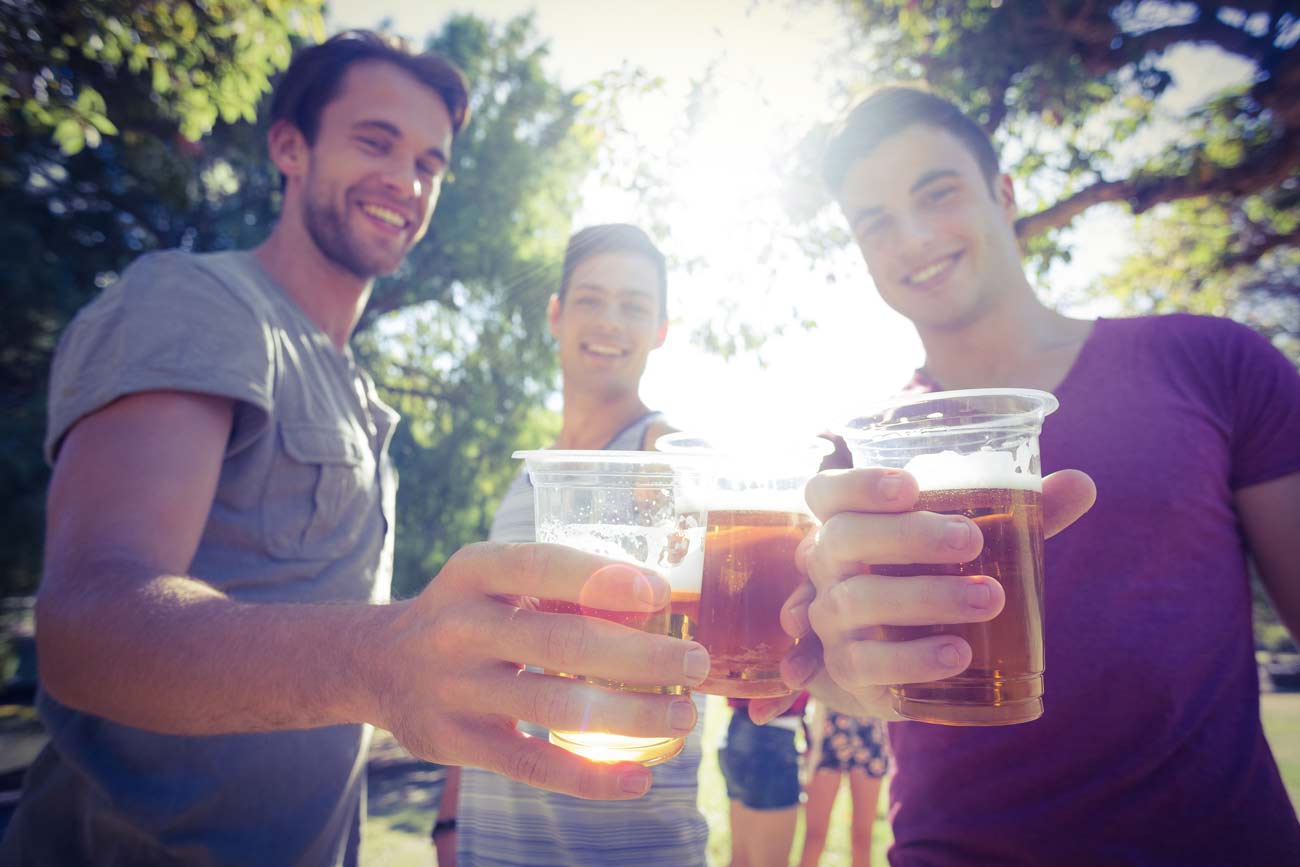
Am I Addicted To Alcohol? Signs Of Alcohol Addiction
‘Fancy a drink after work?’ Go on, just the one…
But how often is it three, four – or more? Have you ever stopped and considered: ‘Am I addicted to alcohol?’ In this article we look at the signs of alcohol addiction.
Alcohol is all around us. And it’s nothing if not mainstream. Think about it – every day we see TV adverts and supermarkets pushing cheap booze, implying that drinking is the key to having a good time. It’s no wonder that so many people are addicted to alcohol.
During the summer months the warm weather makes it difficult to say no to drinking. With barbeques and after work events going on almost every week, it can be difficult to say no.
Dr Christos Kouimtsidis, Consultant Psychiatrist, at The London Psychiatry Centre, specialises in helping patients with addiction, and says: “It can sometimes be difficult for people to pinpoint when they begin to have a problem with drink, because it can happen gradually over a period of time. Alcohol addiction is when drinking becomes counterproductive, but nevertheless, we cannot resist.”
Signs of alcoholism
Want to know if you are addicted to alcohol? If you feel an overwhelming need to drink and the inability to stop once you’ve started, you could be developing signs of alcohol dependency. Below are some of the early symptoms of alcohol dependency that you can look out for:
- A preoccupation with drinking or the following if you don’t have a drink:
- Tremors
- Nausea or vomiting in the morning
- Excessive sweating
- Restlessness
- Racing heart
- Irritability
- Anxiety
If you’re unsure, you can take our test to find out if you have an addictive relationship with drink.
Tips to reduce your alcohol intake
If you find yourself drinking more than you feel you should, there are some simple techniques for reducing your alcohol intake whilst still enjoying a full social life this summer.
Hold your own BBQ that doesn’t centre around alcohol.
Arrange events where drinking alcohol isn’t the norm.
Keep your hands – and your glass – full. Always have a (non-alcoholic) drink in your hand at events to prevent people offering to buy you drinks.
Find a new favourite non-alcoholic drink. Virgin raspberry mojito, anyone?
Make sure a few key people know you are trying to cut back on your drink.
Offer to drive.
Alcohol addiction treatment
If you are worried you may have an alcohol dependency problem, or feel like your drinking is out of your control, we recommend seeking help and treatment for alcohol addiction.
The first step to recovery is acknowledging that you have a problem. “People who are asking for help to overcome an addiction deserve to be respected,” says Dr Kouimtsidis. “Potentially all of us could develop an addiction; only the brave ones try to change an addictive behaviour.”
Recovery from an addictive behaviour requires personal strength and social support. Alcohol addiction treatment at The London Psychiatry Centre begins with understanding the patient’s social environment, strengths, aims, as well any related mental health issues.
“We then formulate a clear treatment plan consisting of pharmacological and psychological interventions. This is structured to capitalise on the patient’s and family’s understanding, pragmatic expectations and strengths. Any addiction treatment involves working towards achievable steps in the right direction. Change of an addictive behaviour does not happen from the outside and is not given by others. It is a process of unlearning a behaviour, of developing appropriate ways of coping with life. Patients need to be prepared for the change, need to be empowered and guided, and so it’s important to have the patient in the driver’s seat with the guidance and support of the clinic.
“We are designed to learn habits but unlearning them is the difficult part and it is far more difficult to do. My approach is to work towards regaining control. Having an addiction is like having a third person in your relationship. It is a fine balance empowering people to understand their behaviour and help them to move on with their lives.”
If you would like the guidance and support of Dr Kouimtsidis to help you take control of your drinking, please don’t hesitate to call our clinic on 020 7580 4224 to speak with a member of our administration team who will be able to book you in for an initial consultation.


